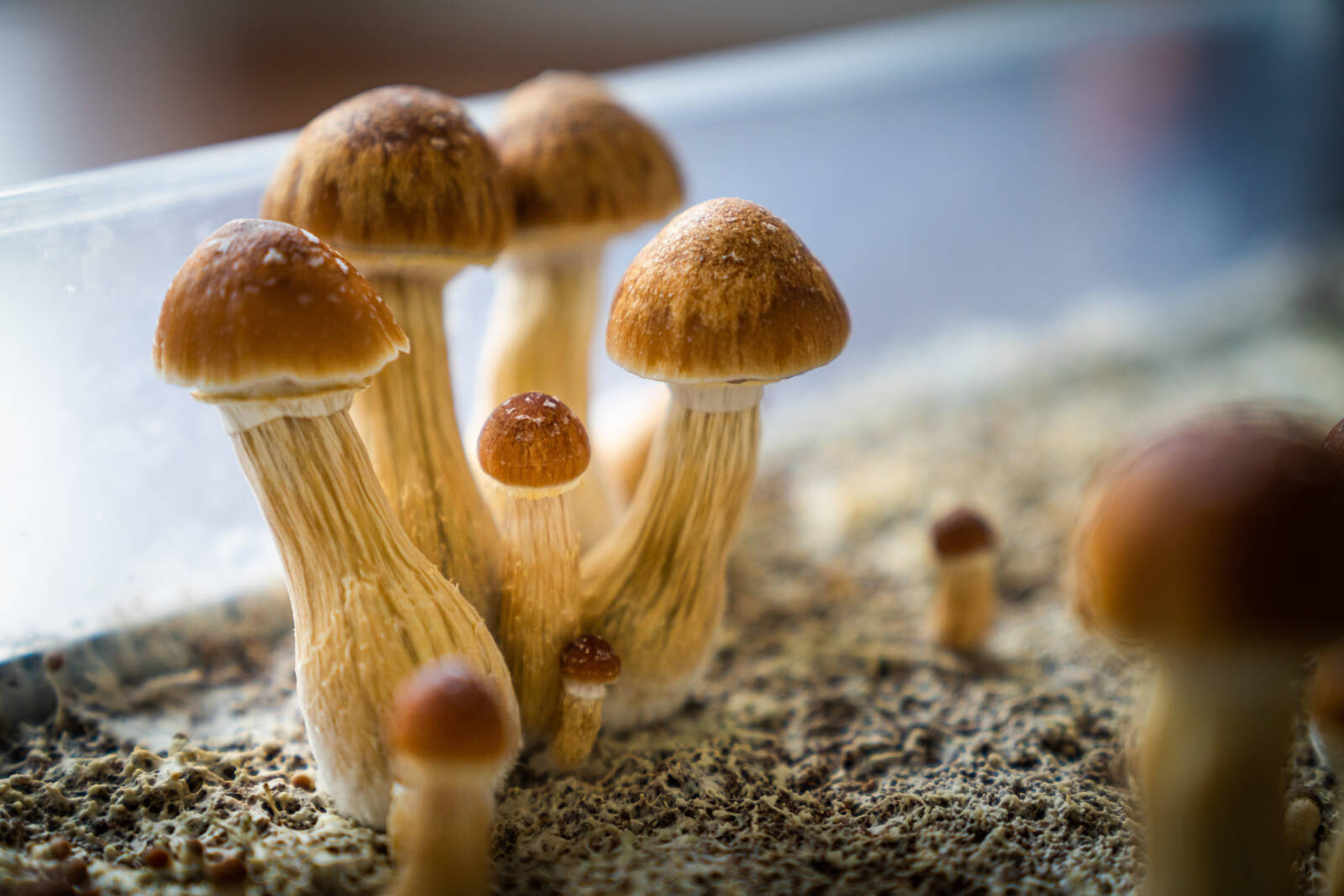The Tacoma City Council in Washington state unanimously voted to stop enforcing laws that ban the use of “magic mushrooms” and other natural psychedelics, while also calling for their statewide decriminalization.
The Jan. 28 resolution is largely symbolic, as the city lacks the power to disregard a state law. The resolution also does not allow people to sell natural psychedelics in the city, carry them into schools or parks, or drive under their influence. But it does make Tacoma the latest Washington city to call for the decriminalization of the plant- and fungi-based psychedelics, following others such as Seattle.
Seattle’s City Council passed a resolution similar to Tacoma’s in October 2021. That year, Seattle police said there were eight arrests involving psilocybin, all of which were connected to other crimes and only one was for attempted distribution. Since 2022, Seattle police have seized psilocybin or another plant-based psychedelic as evidence in 15 arrests, but all of those arrests were associated with other offenses, according to Seattle police spokesperson Detective Eric Muñoz.
Tacoma has not seen a psilocybin-related arrest in at least a decade, said Tacoma Police Department spokesperson Shelbie Boyd and Tacoma City Councilmember Joe Bushnell, who co-sponsored the resolution.
But Bushnell said the resolution is the city’s way of supporting research into and decriminalization of substances like psilocybin, ayahuasca and mescaline, all of which show promise for treating an array of mental health conditions. Federal criminalization of psychedelics has limited such research, but small trials studying their use for treating conditions like depression have shown positive results.
READ MORE: Peyote sacred to Native Americans threatened by psychedelic renaissance and development
The resolution is also key to “eliminating fear” for adults who could benefit from using natural psychedelics but worry about breaking the law, said Cole Schrim, founder of the Tacoma Psychedelic Society.
Psychedelics are in general classified as controlled substances and illegal under federal law and in Washington state at large. But cities can make them a lower priority for police and prosecutors, as Seattle, Port Townsend and Olympia have already done.
“People want to be able to grow something out of the ground, to have medical autonomy and not be told by the government that they can’t benefit from a plant they can grow themselves,” Schrim said. “That’s really what this is about — empowering people to grow their own plant or fungi medicine.”
Tacoma approved the resolution days before the state Legislature had its first public hearing for Senate Bill 5201, which would allow people 21 and up to use psilocybin under the supervision of a facilitator licensed by the state health department.
Oregon voters passed a similar law in 2020, becoming the first state in the U.S. to legalize psilocybin for supervised therapeutic use. But four cities in the state voted to ban the substance last year, as they appeared to sour on drug reform, The Oregonian/OregonLive reported.
Schrim, who helped author Tacoma’s resolution, said Oregon’s “service center model” — similar to the one that would be created if Washington’s SB 5201 passes — is flawed, as it restricts psilocybin use to specific patients and settings. Members of the Tacoma Psychedelic Society are hoping the state will make it legal for adults to cultivate, use and share natural psychedelics without so much red tape.
“What happens is as we see in Oregon, and in the cannabis movement, only a certain group of people deemed appropriate and regulated by the government is able to benefit,” Schrim said. “It’s exclusionary and contributes to a for-profit system.”
Schrim, a 33-year-old licensed therapist, said they founded the Tacoma Psychedelic Society in 2023, after natural psychedelics helped them stop drinking alcohol. Schrim said the group has since grown to about 50 members and drafted Tacoma’s resolution last year, which they brought to Bushnell, who agreed to be its sponsor.
The promise natural psychedelics show for treating mental health conditions like post-traumatic stress disorder resonated with Bushnell, who said he was diagnosed with the condition after serving 11 years in the U.S. Marine Corps, including a combat tour in Afghanistan.
“I know how severe and debilitating it can be,” Bushnell said. “This is an opportunity for people to live a normal life and work through their issues.”
The biggest roadblock advocates faced were questions about — not opposition to — the resolution, Schrim said.
Most residents and council members Schrim spoke with knew very little about psilocybin. It took about a year of “rolling up (their) sleeves” and educating people, many times one on one, before they brought the resolution to the City Council in December, Schrim said.
Audience members at Tacoma’s Jan. 28 council session broke into applause after the vote. Tacoma Mayor Victoria Woodards thanked more than a dozen people who shared public testimony about how psychedelics like psilocybin mushrooms had benefited them.
Woodards said she had already planned to vote yes on the resolution, which she co-sponsored. But hearing people’s personal experiences made her into “an advocate” for decriminalizing the substance statewide.
“It takes a lot to share your story — there’s judgment,” she said. “I’m truly grateful for that and look forward to making sure that not only does Tacoma do this, but Washington state does this.”
To get the week’s latest must-read stories from the cannabis world direct to your inbox, sign up for our weekly newsletter at canadianevergreen.com. You can also follow us on Facebook, Instagram and Twitter.

